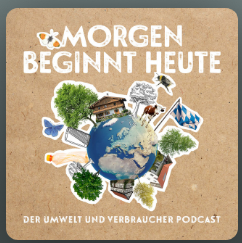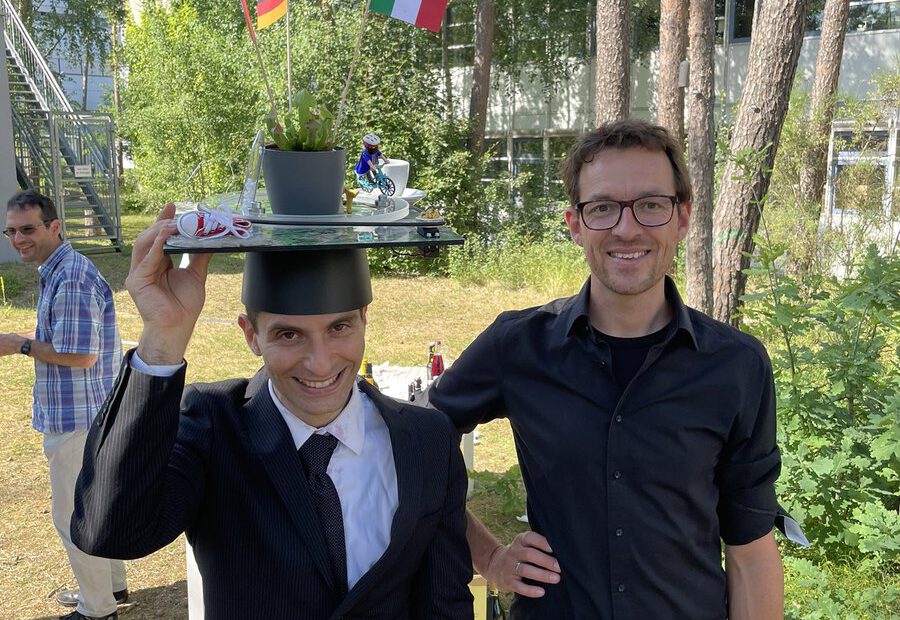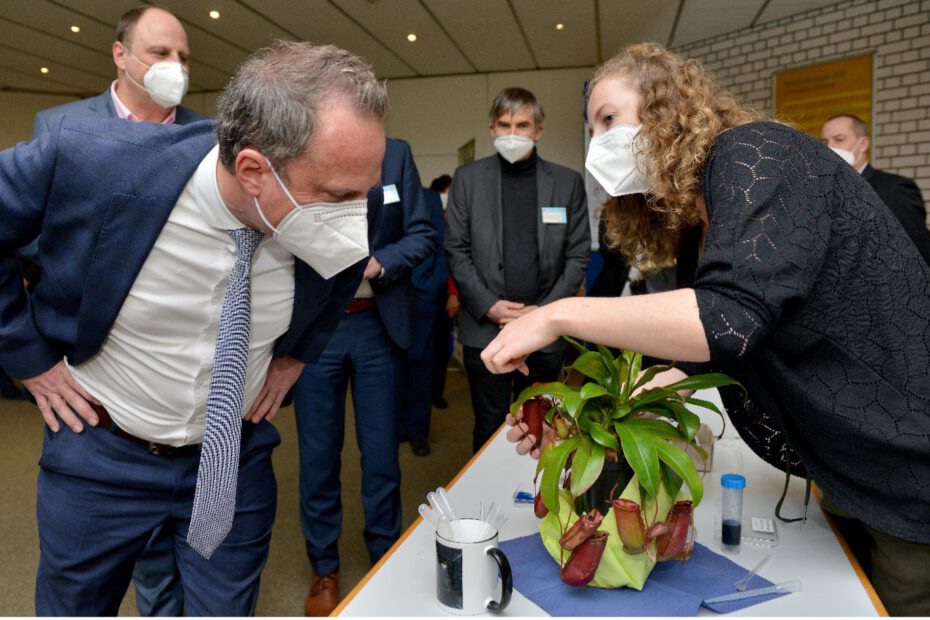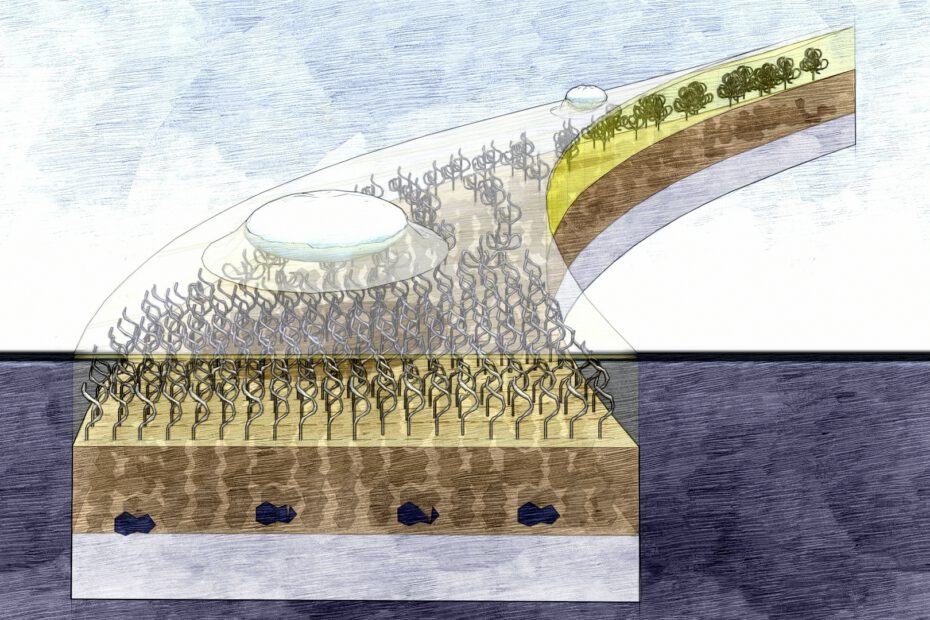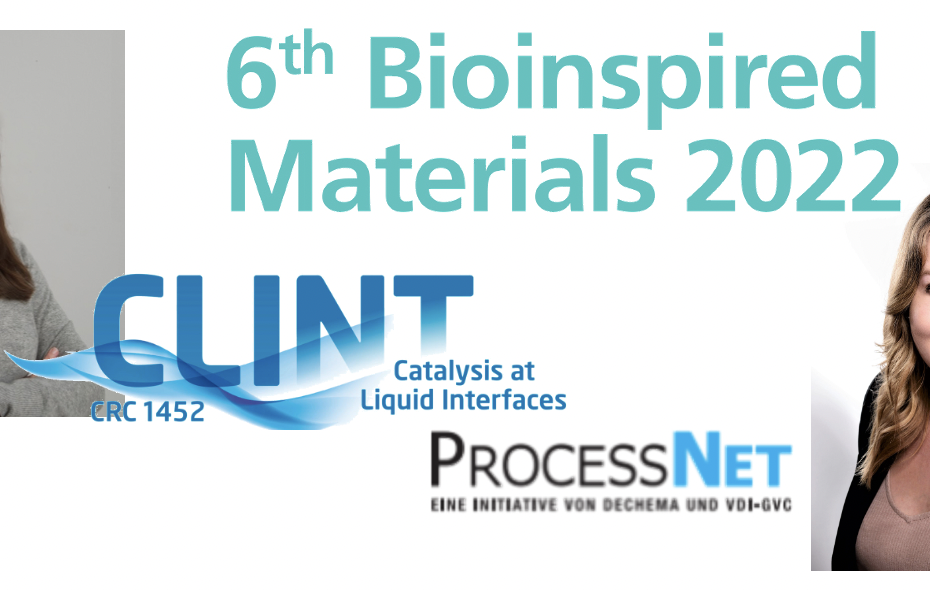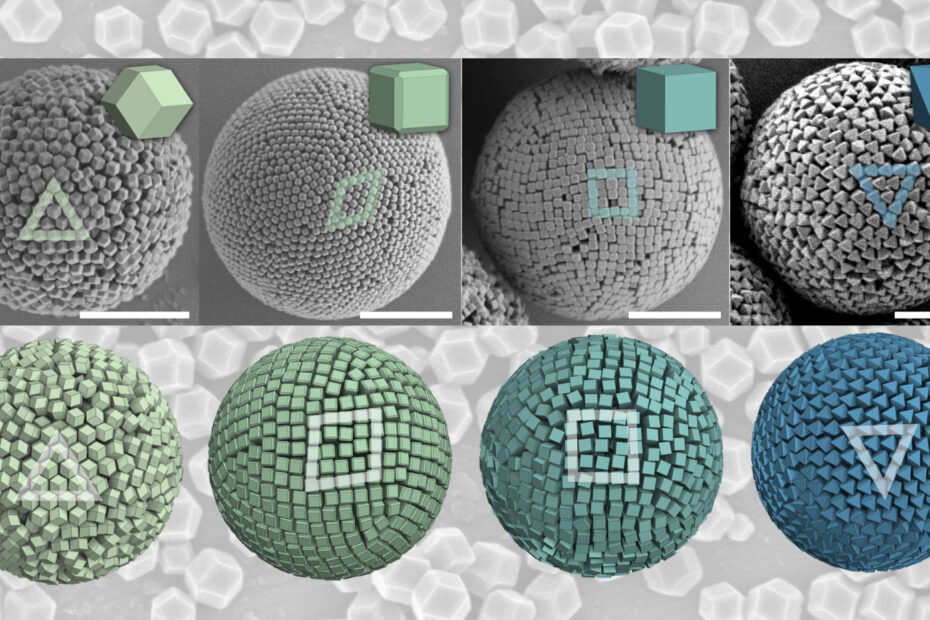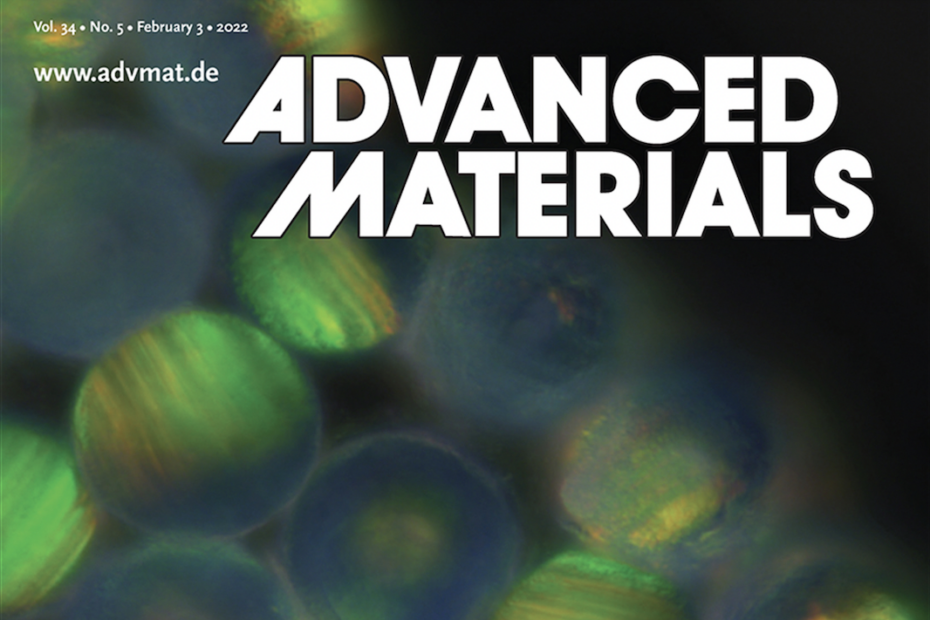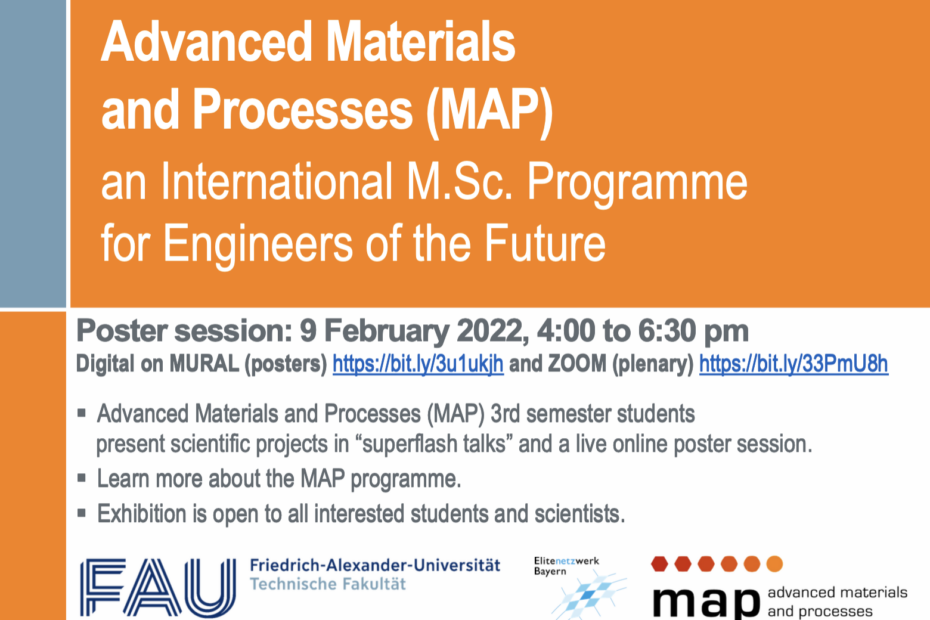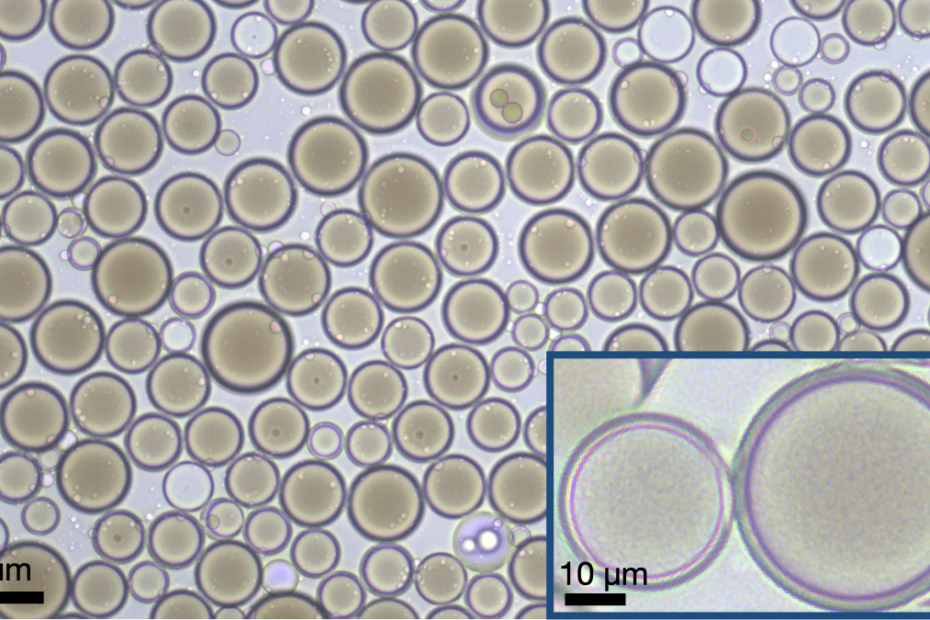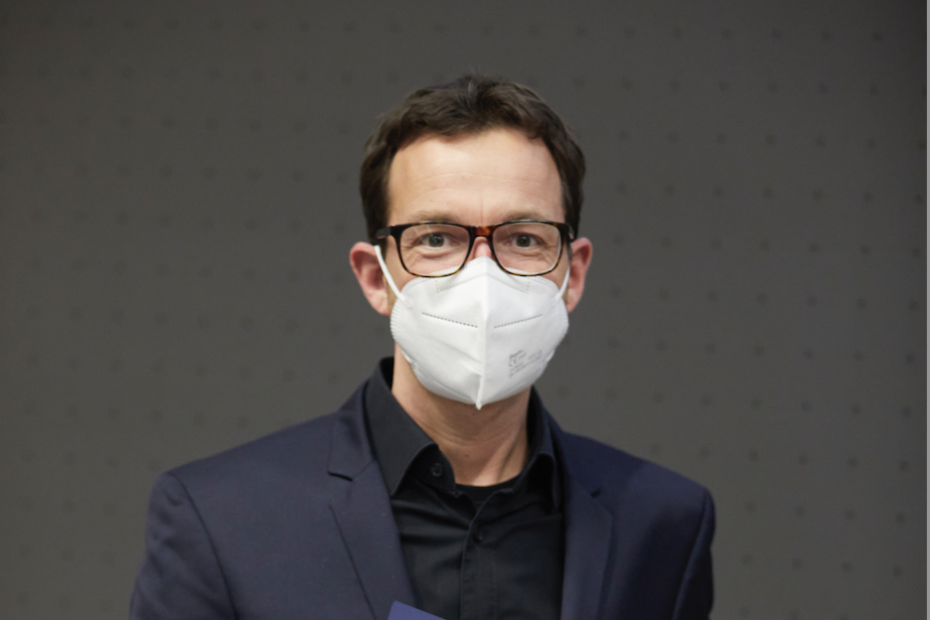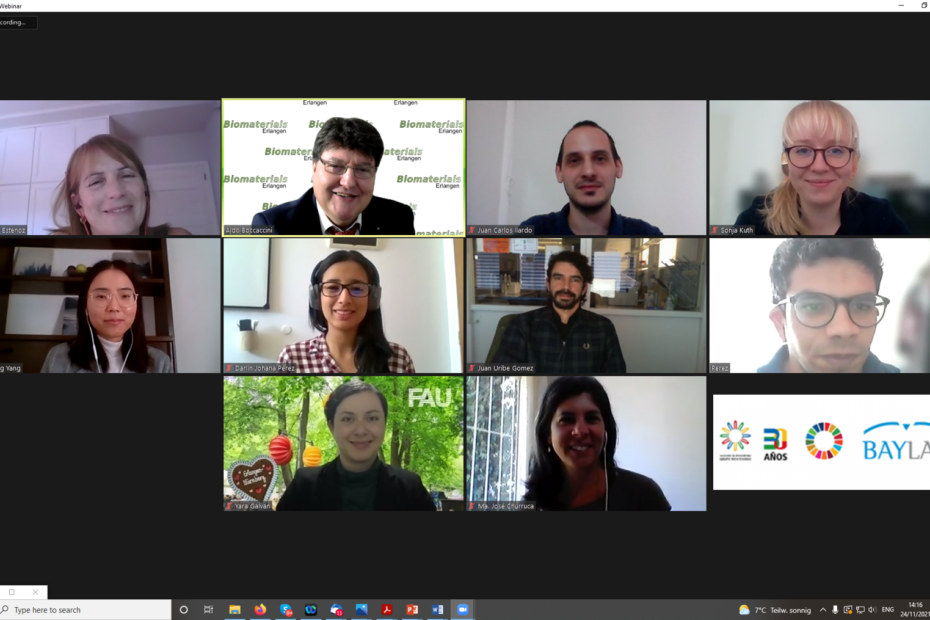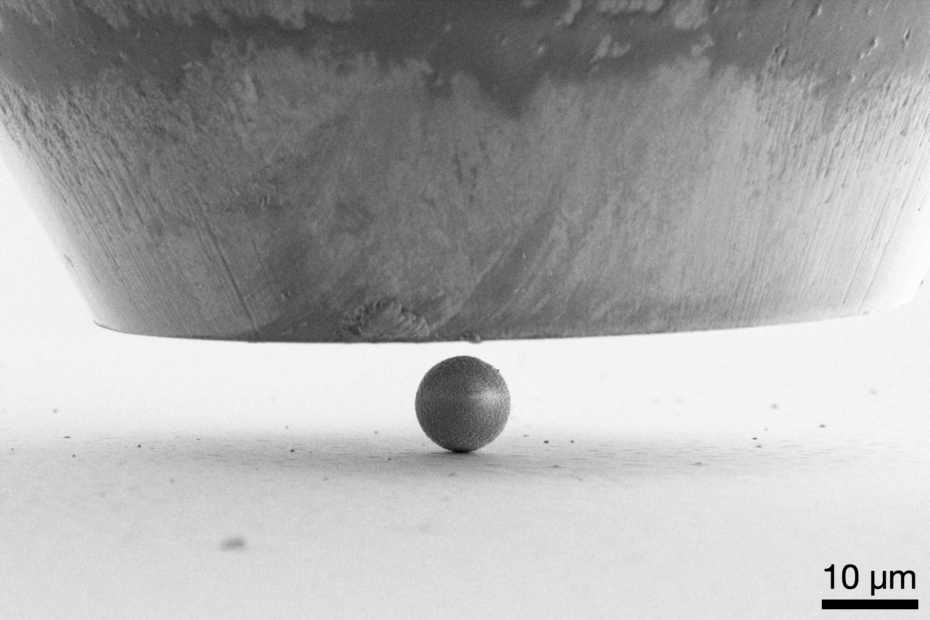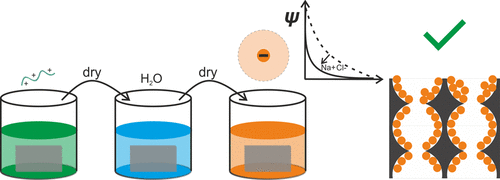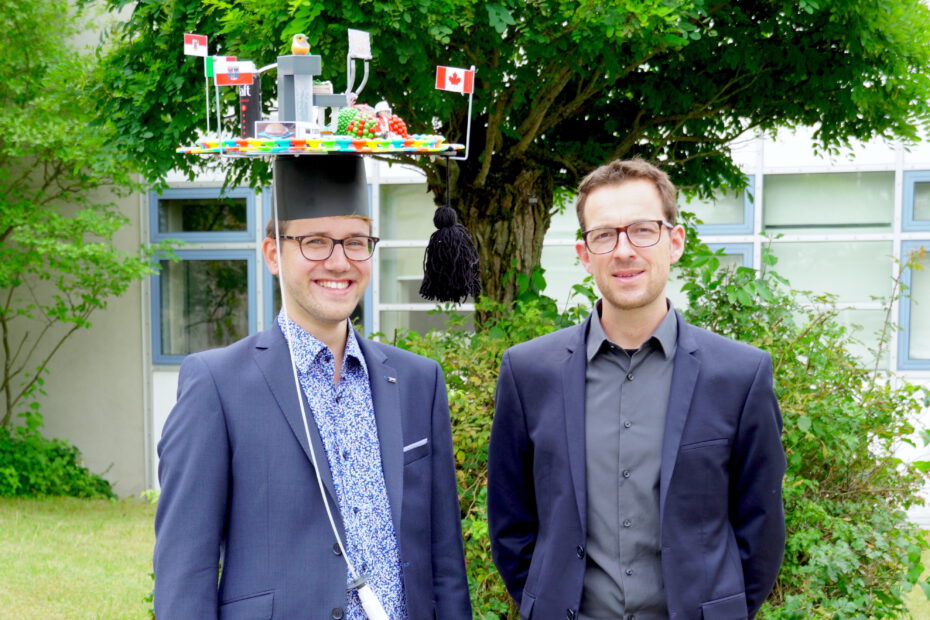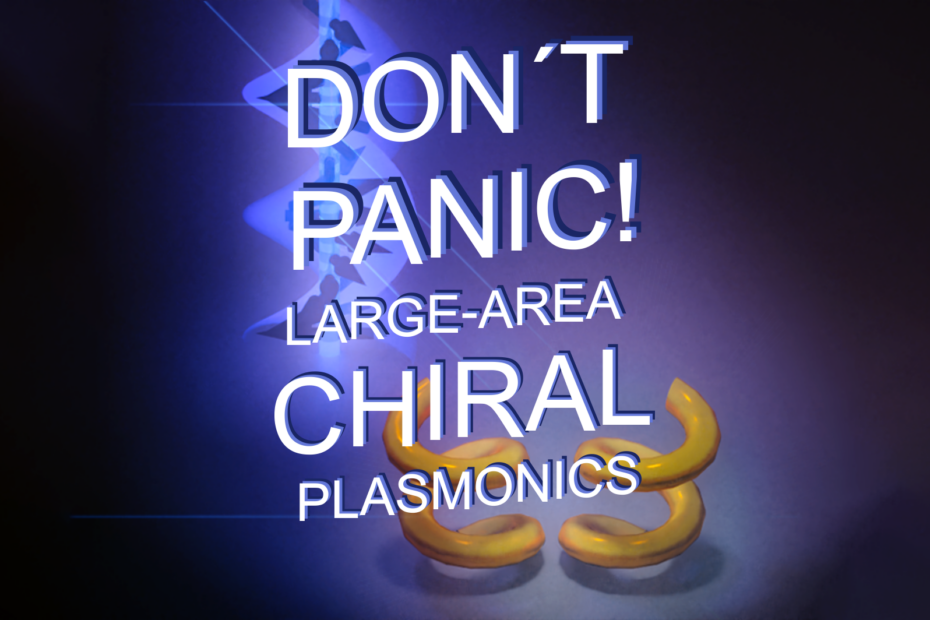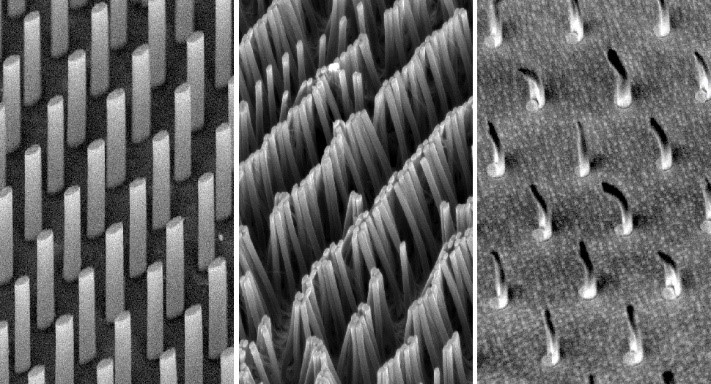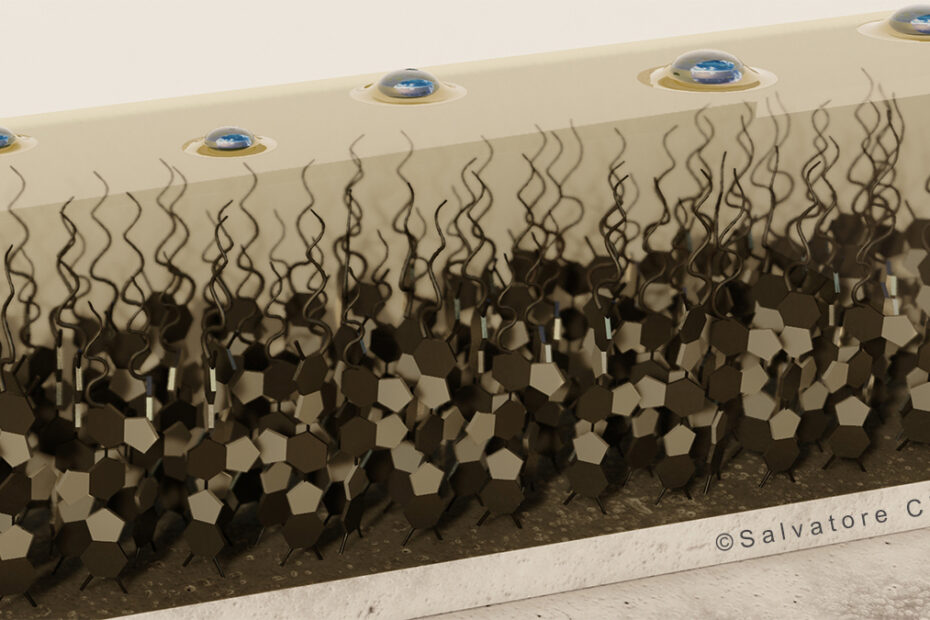Have you ever spilled your cup of coffee? You may have noticed how the coffee dries into an intriguing stain with a bright centre and a dark ring encircling it. This “coffee ring” forms because the liquid evaporates faster at the edges, inducing a flow from the droplet interior towards the outside. Suspended solid coffee particles thus accumulate at the drop edge, causing the characteristic ring pattern. In Nature Communications, we present a simple, yet versatile strategy to overcome the omnipresent coffee ring effect and achieve homogeneous drying patterns of… Read More »Marcel nat comm
Bionic innovation towards environmental protection – The successful end of our joined project BayBionik with the Bavarian State Ministry of the Environment and Consumer Protection was celebrated at a final event at the Bionicum in the Tiergarten Nürnberg. We presented our work on self-cleaning and sustainable surface coatings to the public and Staatsminister Thorsten Glauber. You can read the full article here.
From sticky mussel-inspired chemistry to the slippery liquid-infused surfaces, we could combine two bioinspired approaches with opposite interfacial properties to fabricate repellent surfaces with an in-situ self-functionalizing lubricant! New paper out in in ACS Appl. Mater. Interfaces! Read it here
We’re very happy our research caught some attention at the recent in-person events we attended! Teresa was awarded the best poster prize both at Processnet and Bioinspired Material 2022 and Giulia won the best talk award at the CLINT iRTG workshop. We’re glad our work on environmentally friendly repellent surface coatings in the frame of the BayBionik project carried out by Teresa and Giulia’s results on colloidal templated supports for liquid metal catalysts were so well received.
New paper by Teresa is published in Green Chemistry!In this work we introduce a simple and environmentally benign method to create functional coatings mimicking the lotus leaf and the pitcher plant in a scalable process. In contrast to conventional fabrication processes that typically require toxic components and elevated temperatures, we developed an aqueous dispersion-based, fluorine-free coating system that produces highly repellent surface coatings at ambient conditions. This work is a contribution to the Baybionik Projektverbund. Read the full paper here!
Curious to know more about the research going on at FAU and about the elite master program MAP? The English-taught interdisciplinary M.Sc. programme “Advanced Materials and Processes” (MAP) offers their annual MAP poster session again in a digital format on 9 February 2022 from 4:00 to 6:30 pm. Part time attendance is possible.MAP students of the third semester present scientific posters showing the results of their mini projects and other research work. After short introductions of two poster sets, each poster and the scientific work behind it can be individually… Read More »MAP poster session 2022
In November 2021, Prof. Nicolas Vogel of the Institute of Particle Technology was awarded the “Lehrpreis der technischen Fakultät” (Teaching award of the Faculty of Engineering). According to the selection committee, the awards reflects the excellent student evaluations of the courses given by Prof. Vogel over the last five years and show his dedication to teaching and education. Prof. Vogel currently teaches a range of courses in the curricula of Chemical and Biological Engineering, Chemical Engineering – Nachhaltige Chemische Technologien, Life Science Engineering, Advanced Materials and Processes and Clean Energy… Read More »Nicolas Vogel receives teaching award of the Faculty of Engineering
Colloidal supraparticles promise exciting applications. But are they mechanically stable enough to deliver these promises? We investigate the mechanics of colloidal supraparticles under compression. We find a scaling relationship between the supraparticle geometry and its fracture, and how the fracture is influenced by interparticle adhesion. Many thanks for Benoit Merle, Prof. Peukert, Andi Ströbel, Jan Schwenger and the coauthors for the great collaboration! Image credit: Jan Schwenger.
A chiral plasmonics review? Don´t panic, we have you covered! In our review, we discuss mostly harmless theory, as well as the design and fabrication of large-area chiral plasmonic substrates. We hope this more tutorial-style review provides easy access to the complex field, and brings chiral plasmonics closer to applications and multidisciplinary research. Please find our review in Advanced Optical Materials at https://doi.org/10.1002/adom.202100378This review was a great collaborative effort between Lisa Poulikakos´ lab and the Vogel lab – thank you all very much for this great opportunity.Here is the toc… Read More »Eric review
Together with Fedja Wendisch and Gilles R. Bourret we fabricated anisotropic Si nanowire arrays over large areas. The pallet of the possible cross-sections was extended to elliptical and crescent-shaped wires using MACE and colloidal lithography. Controlled bundling occurs, leading to anisotropic surface topographies. Find our just accepted paper in Nanoscale Advances.
Teresa showed her research project “Auf Rutschpartie mit der Kannenpflanze” to interested young female students and answered questions about being a female scientist in engineering at the Girls Day of Bionicum Nürnberg today.
